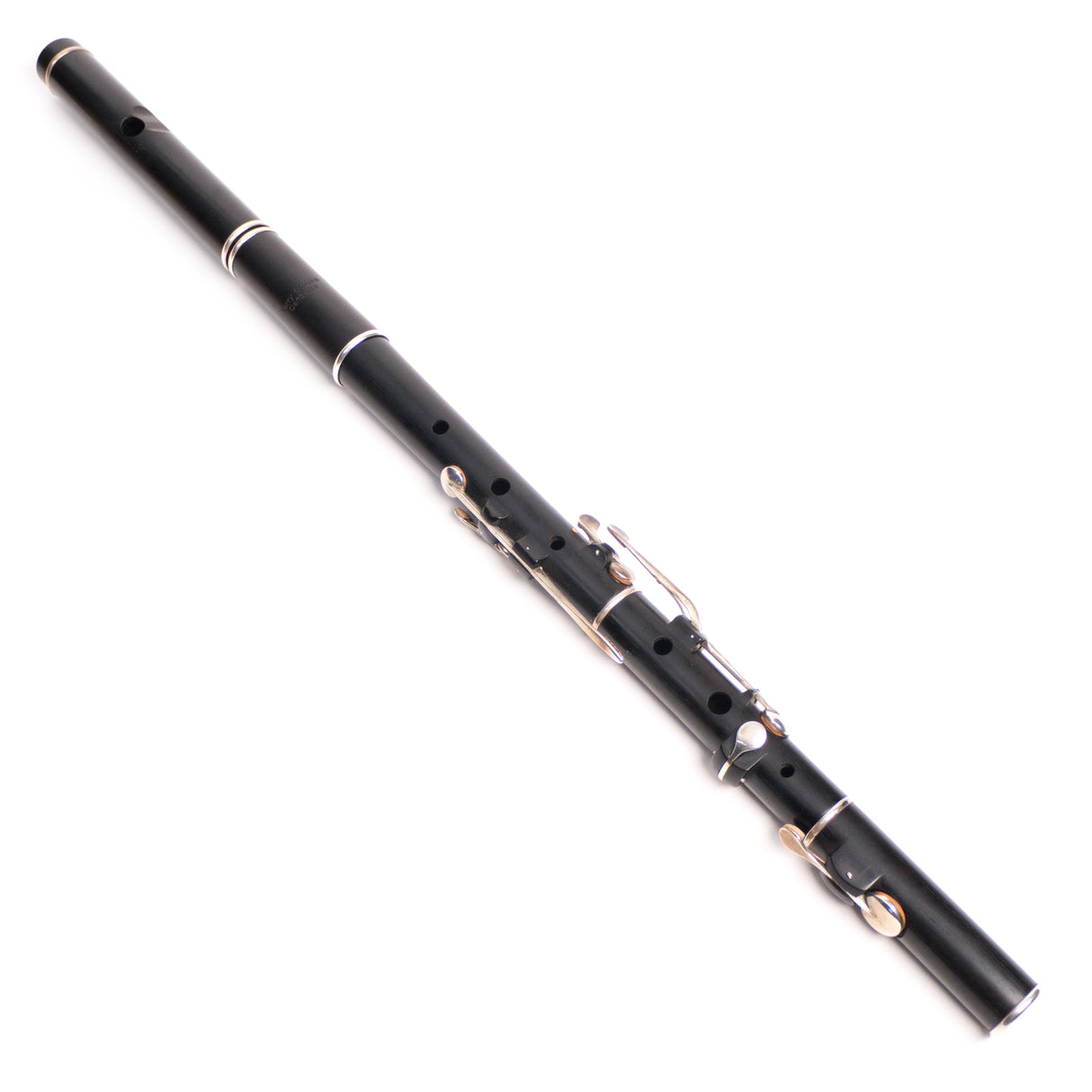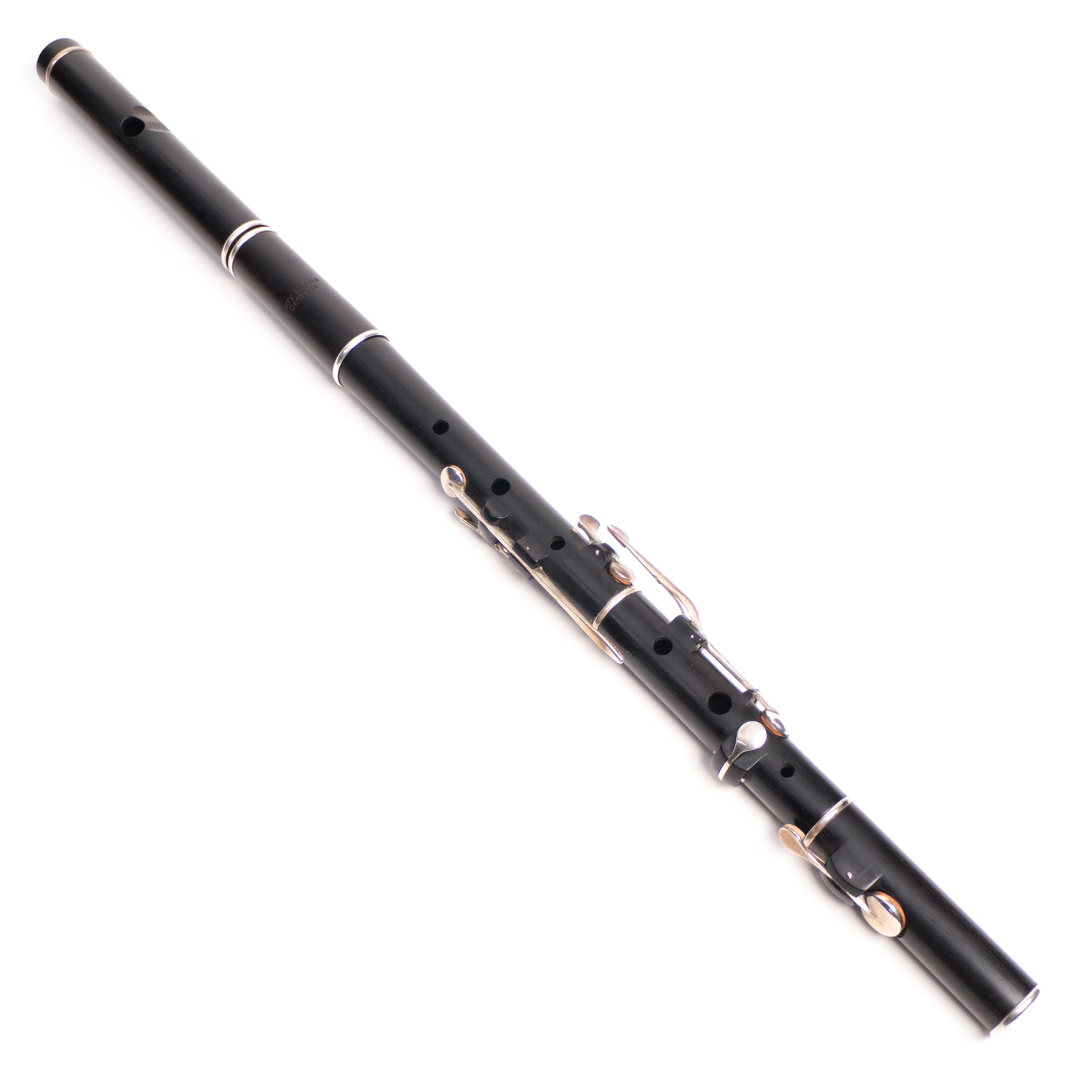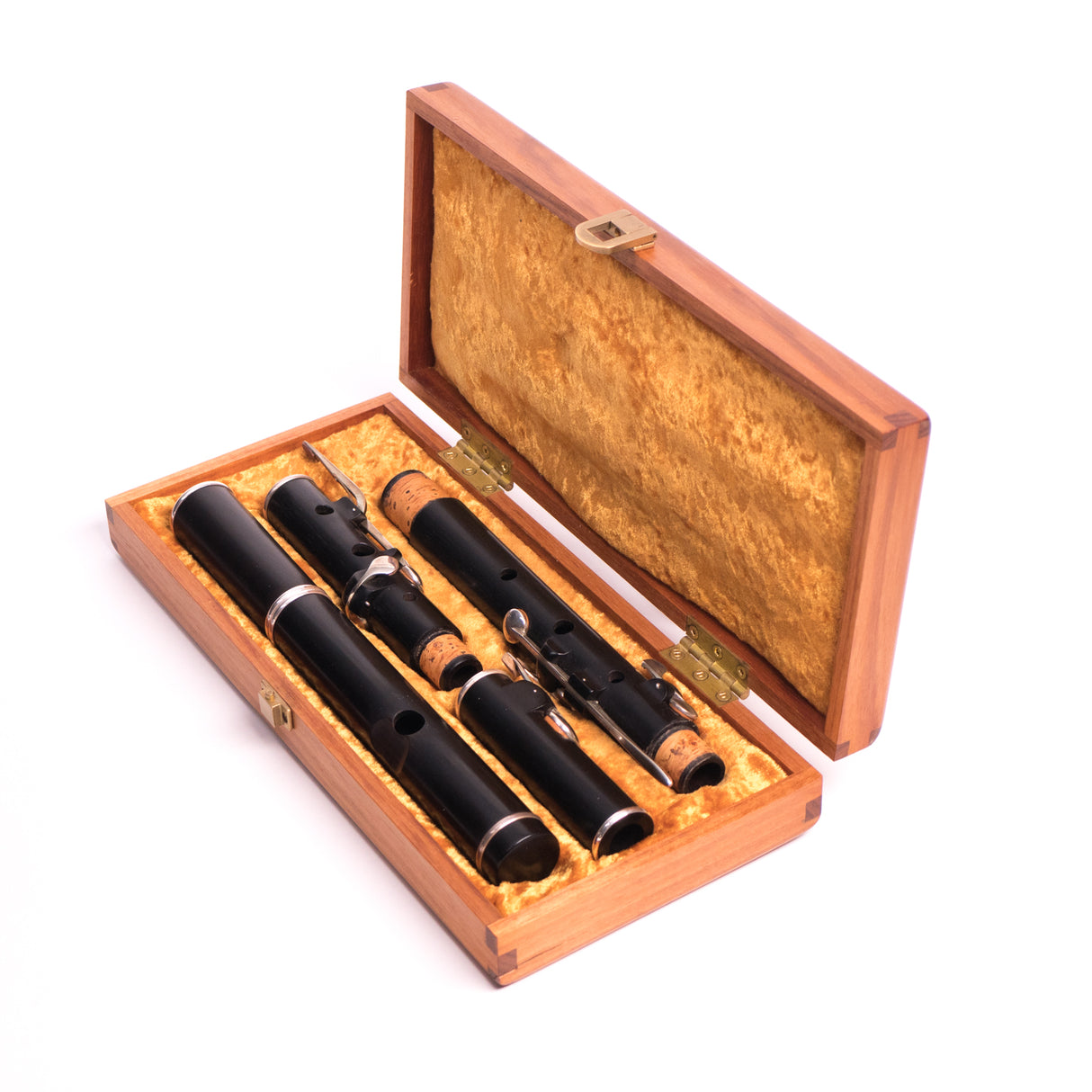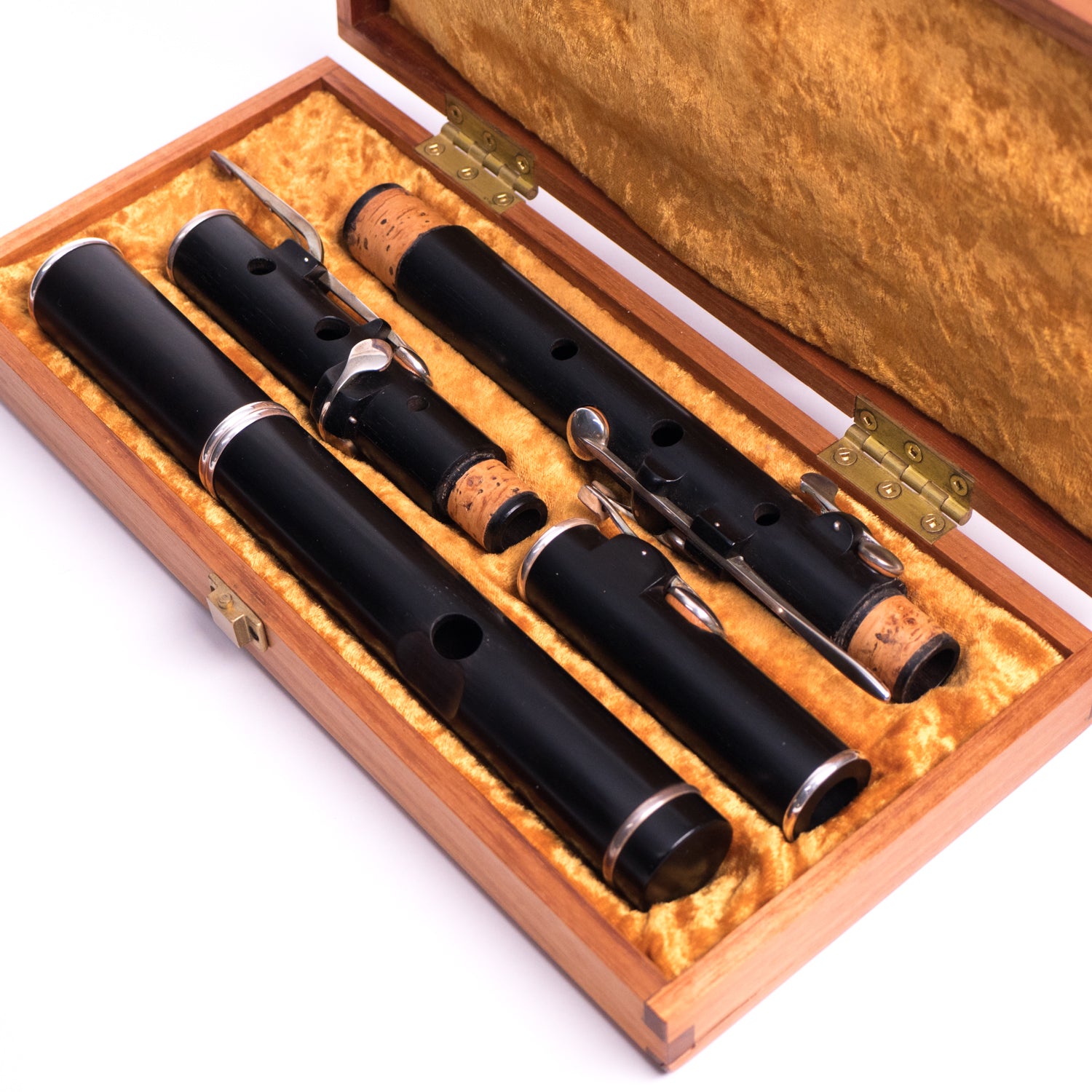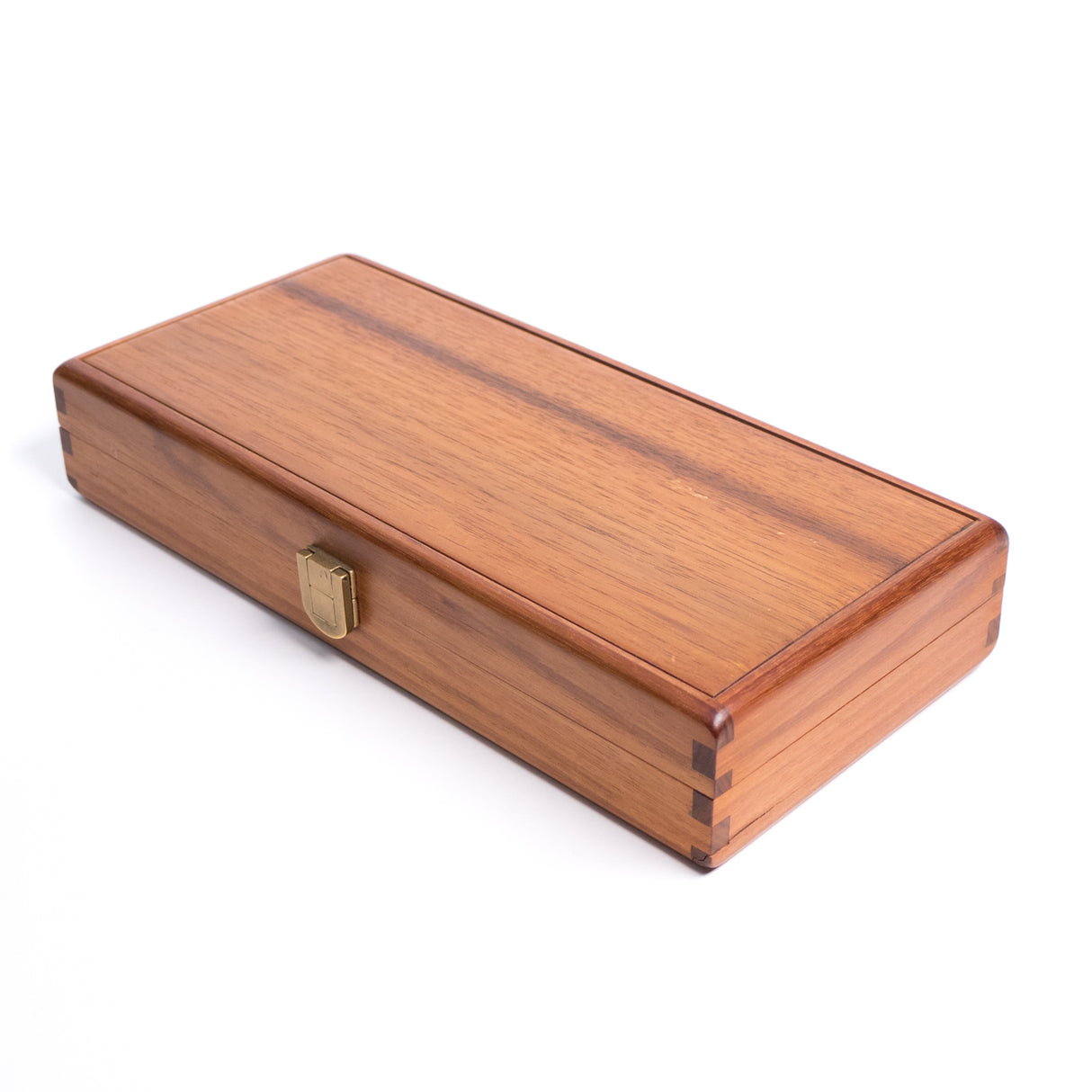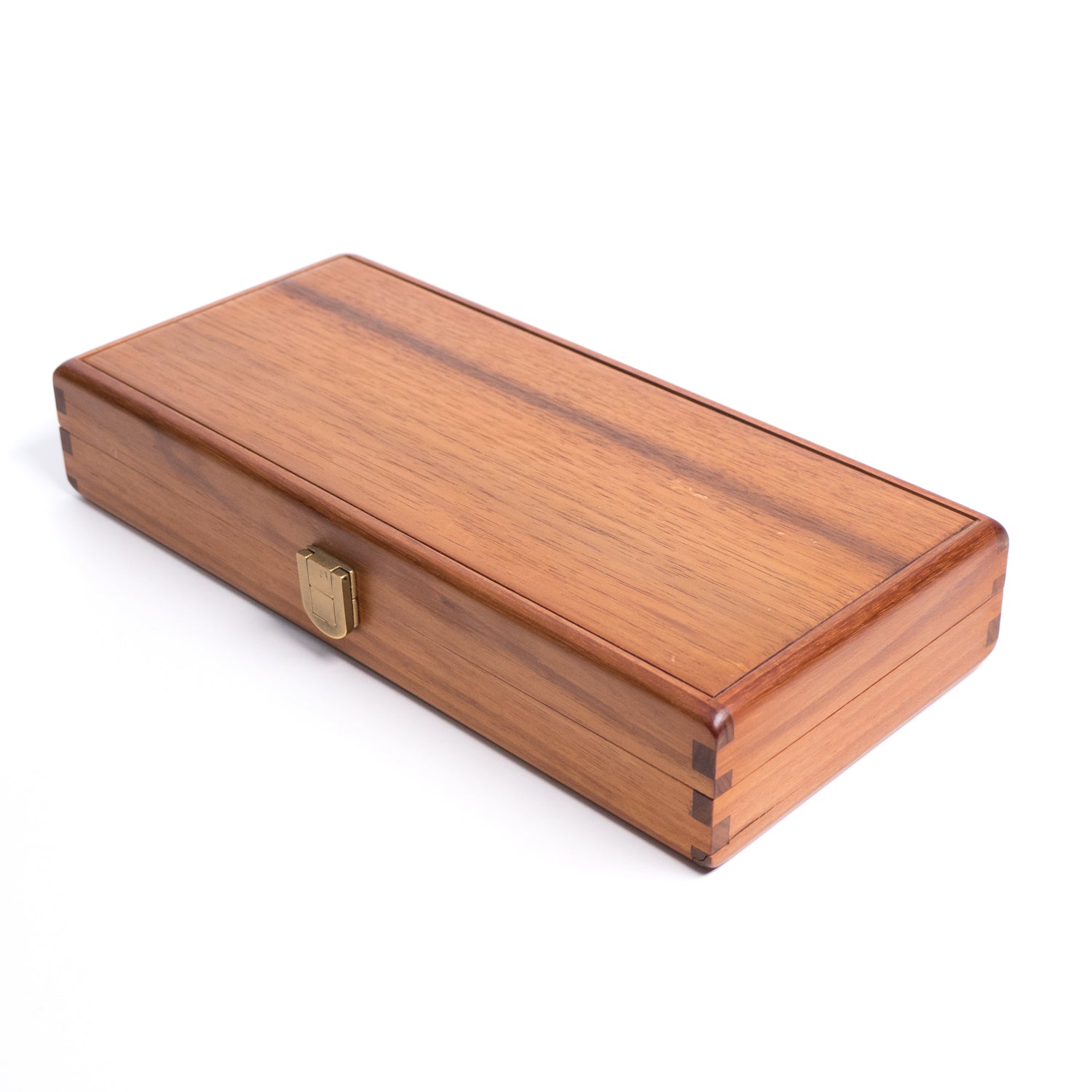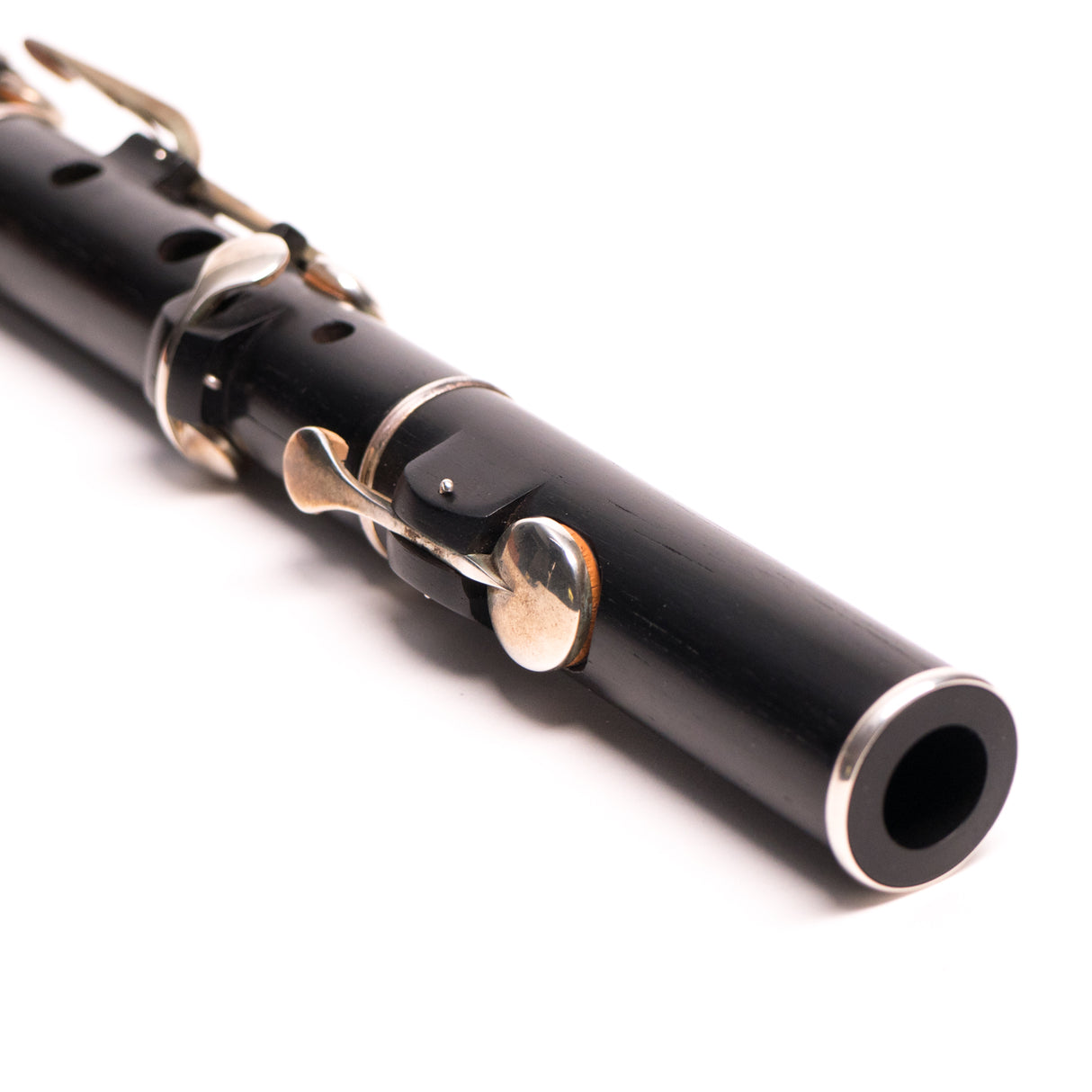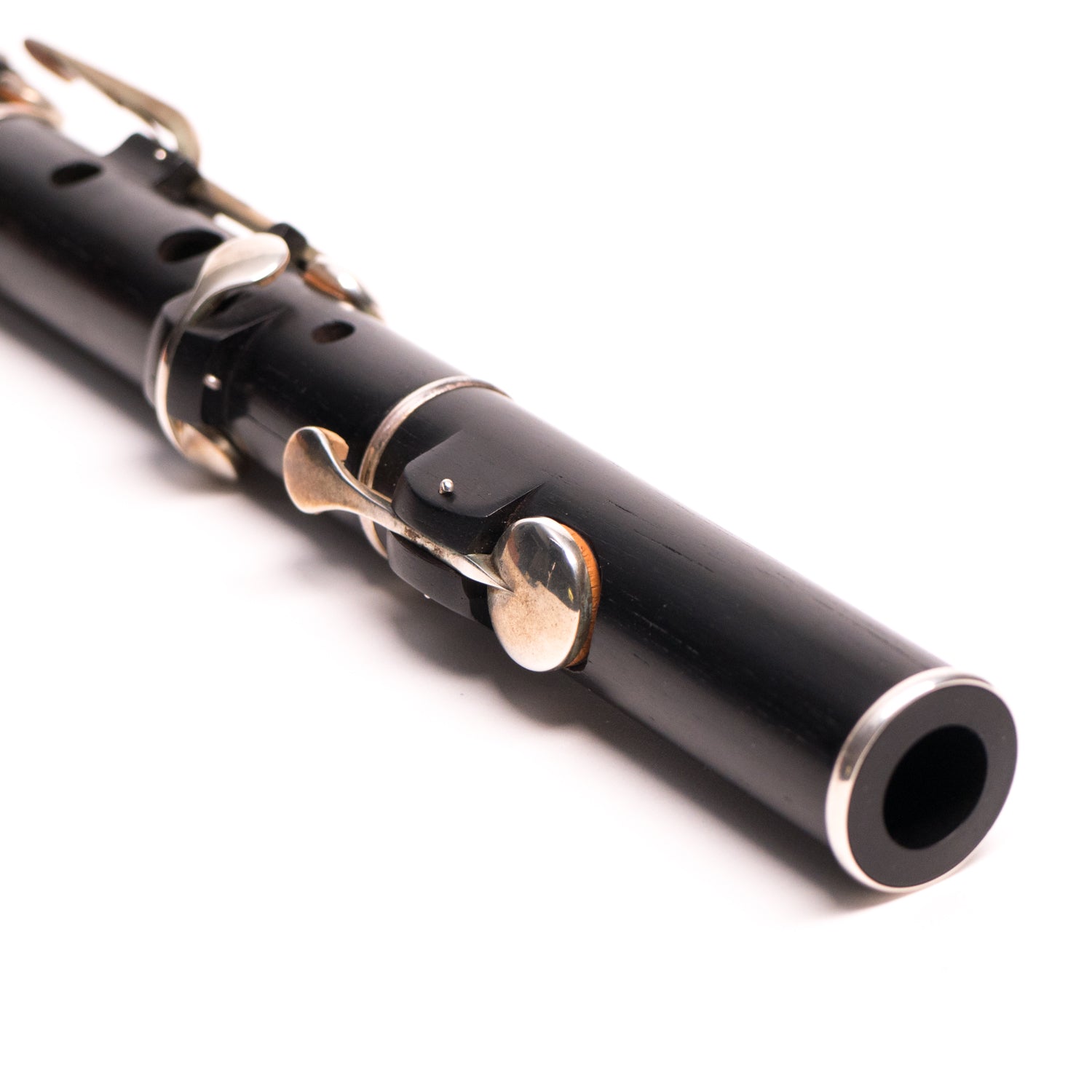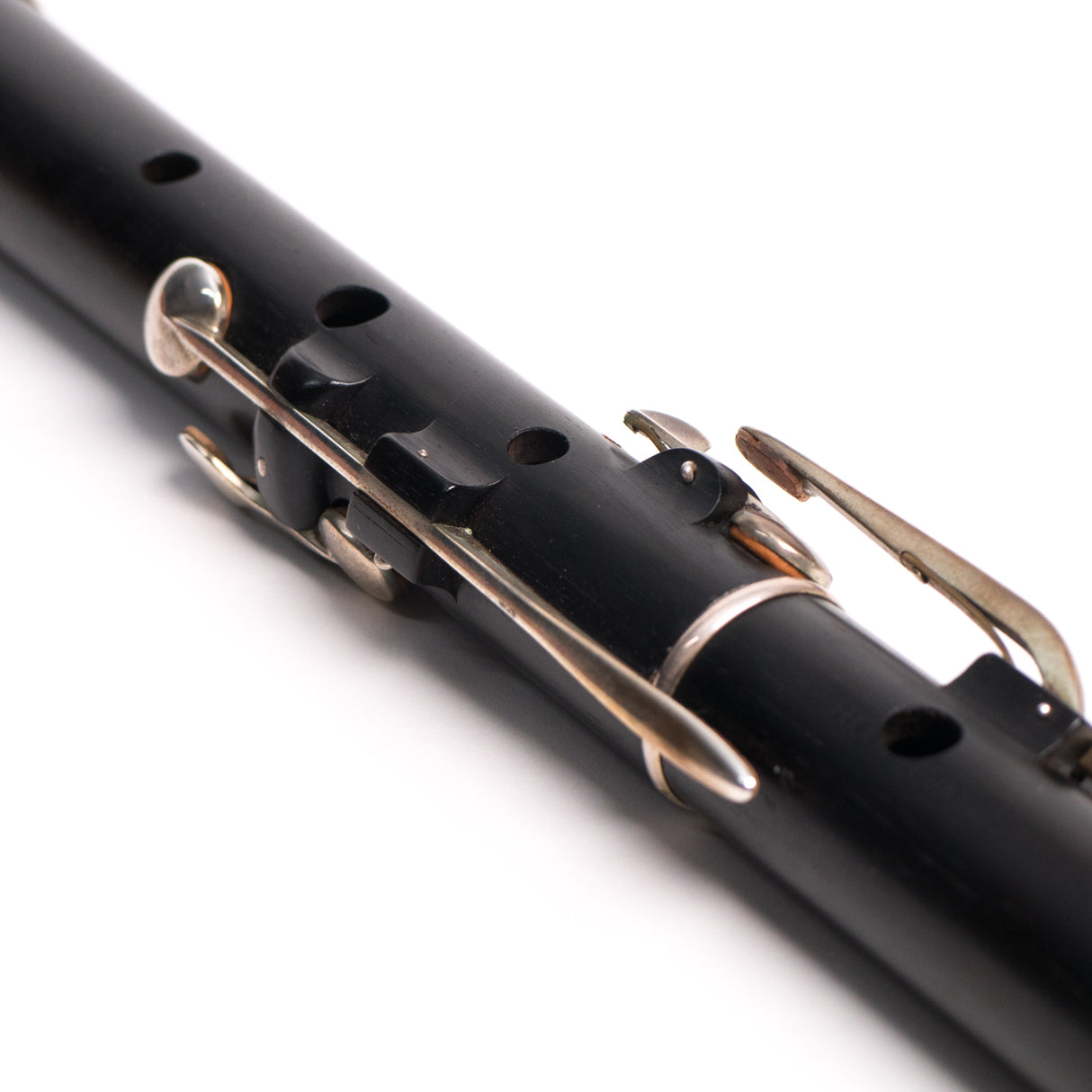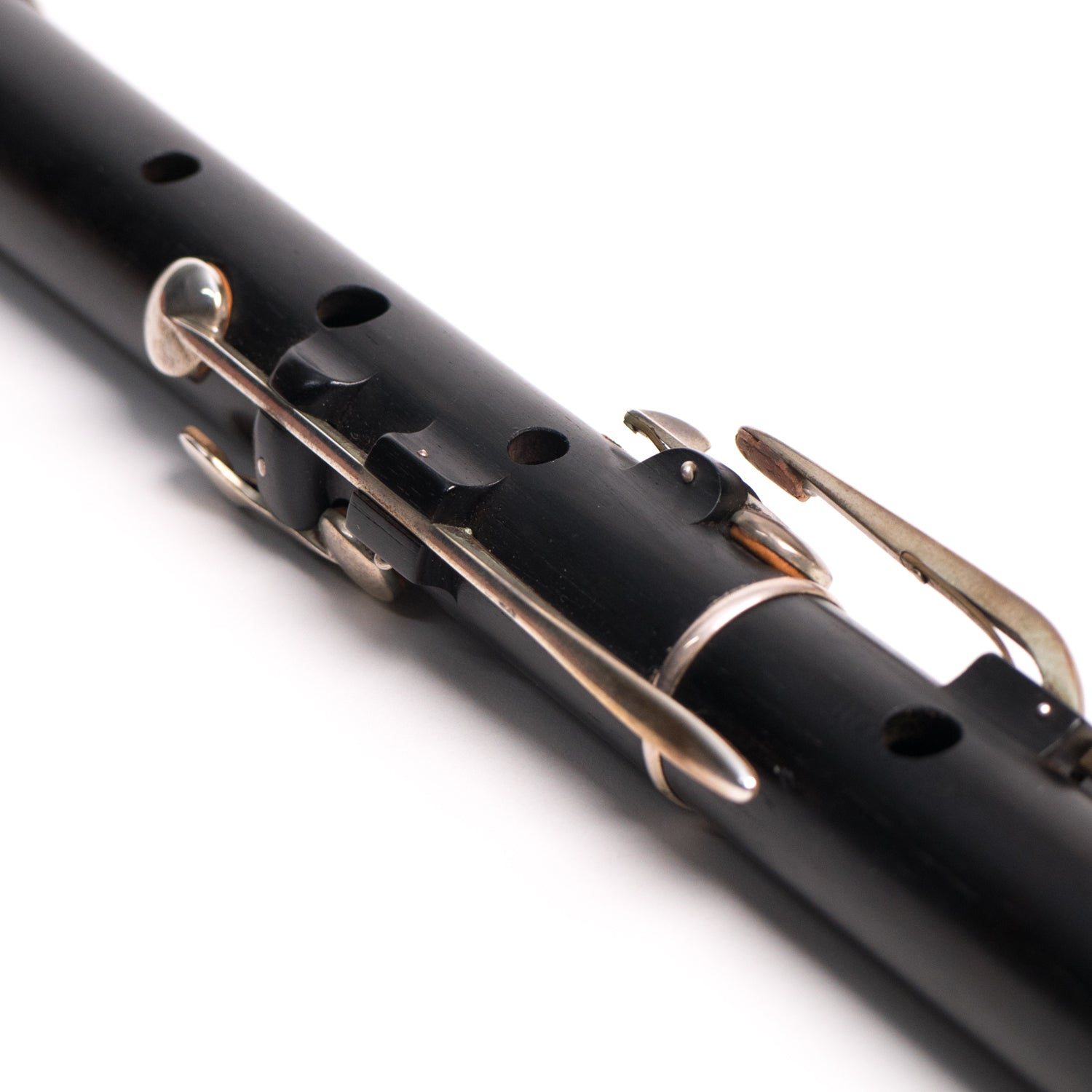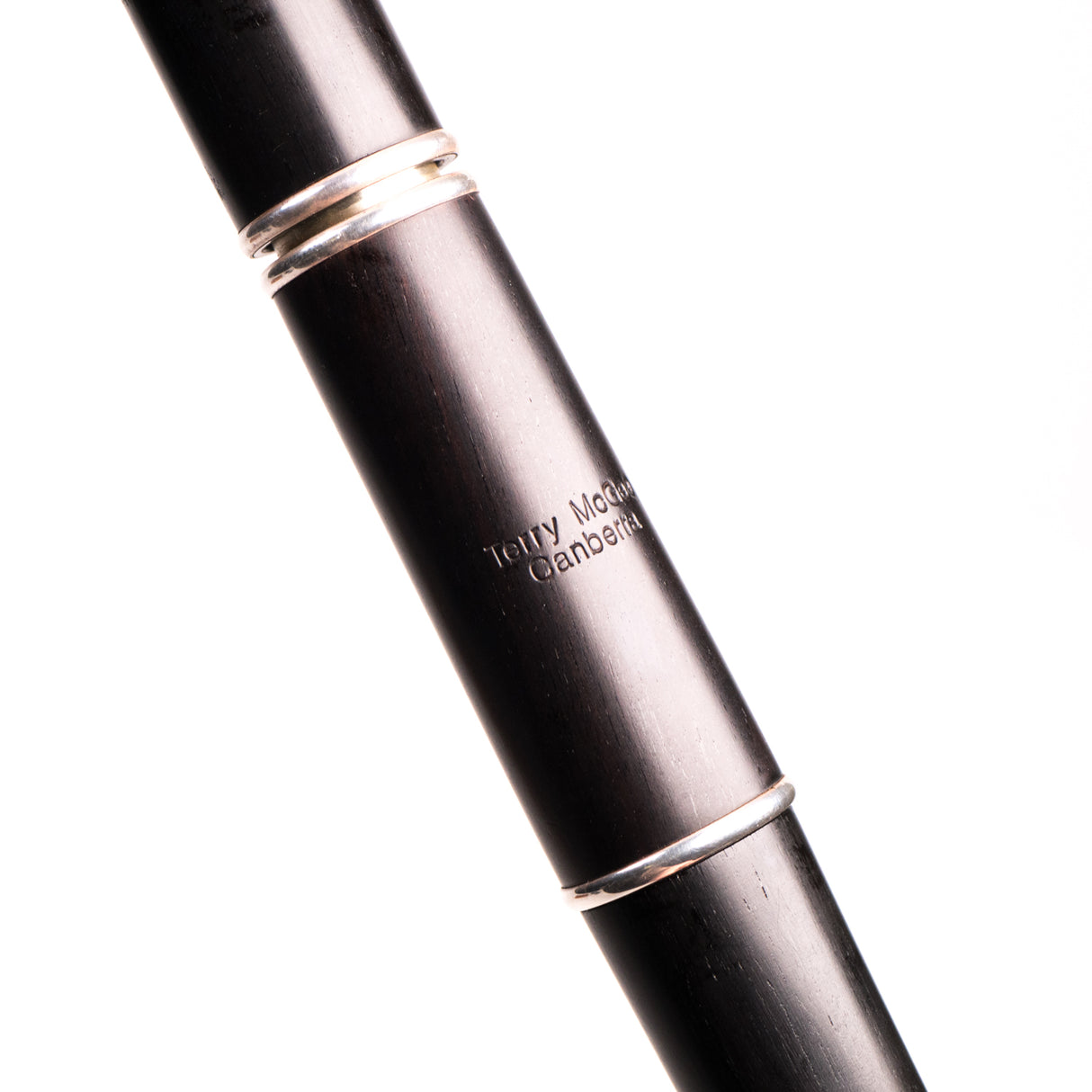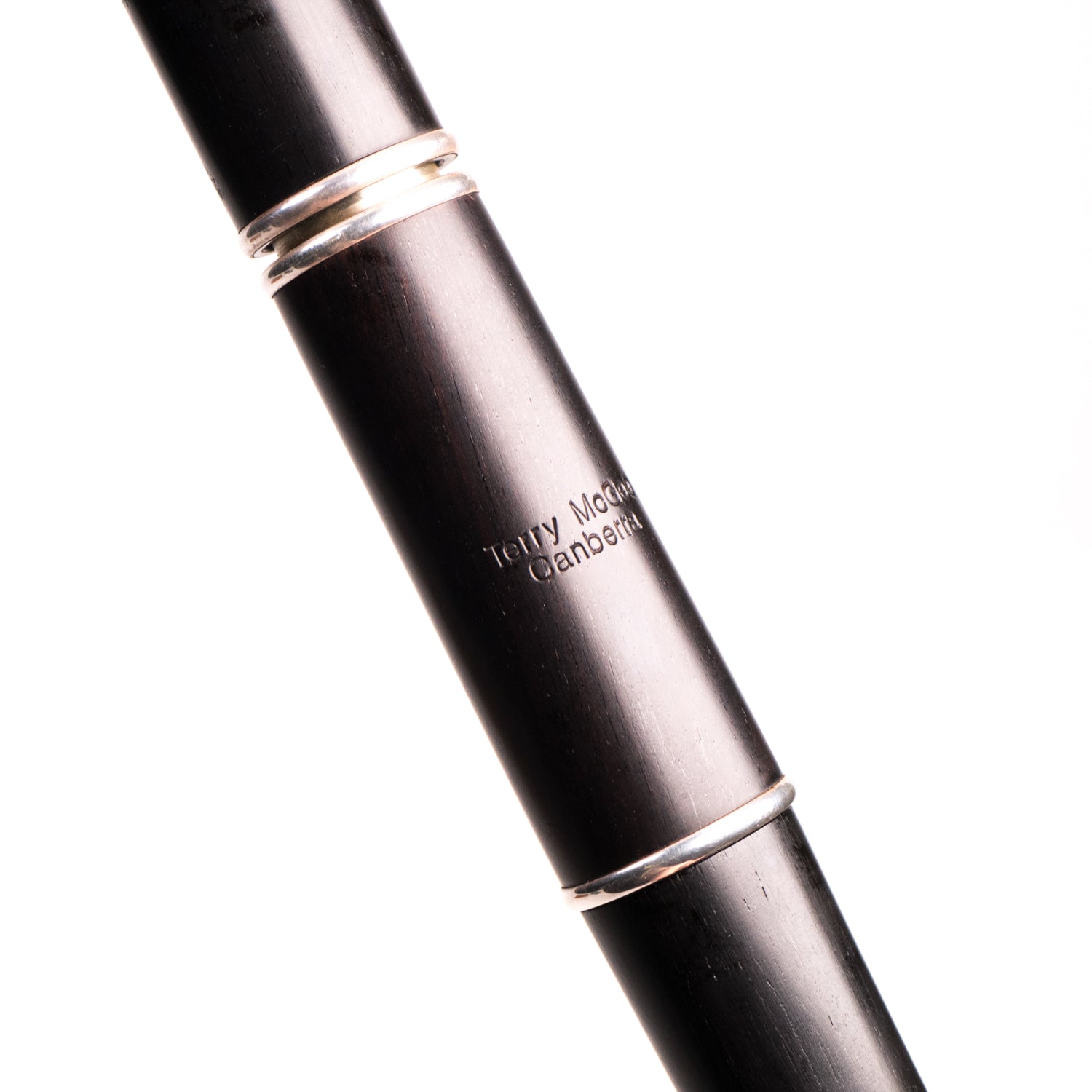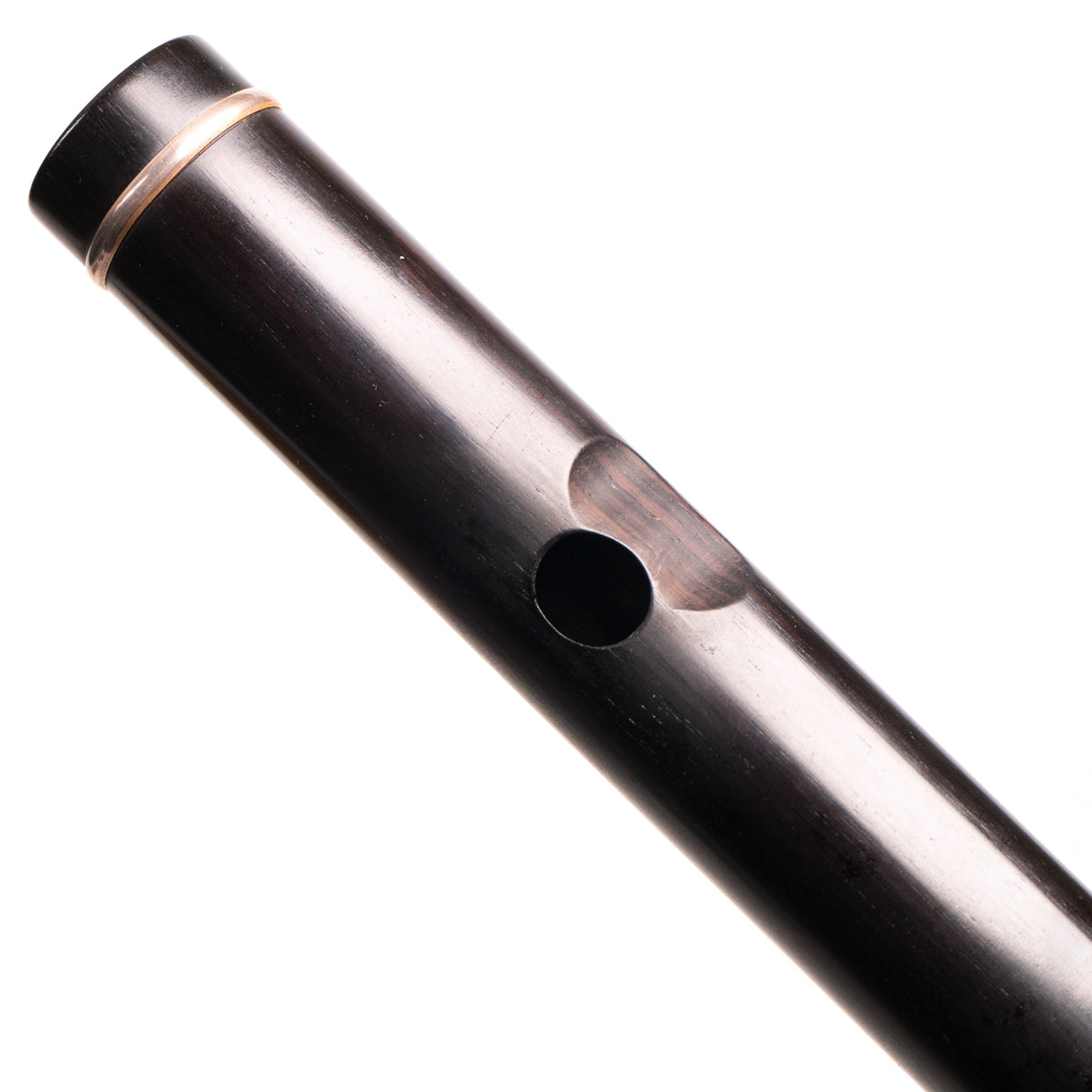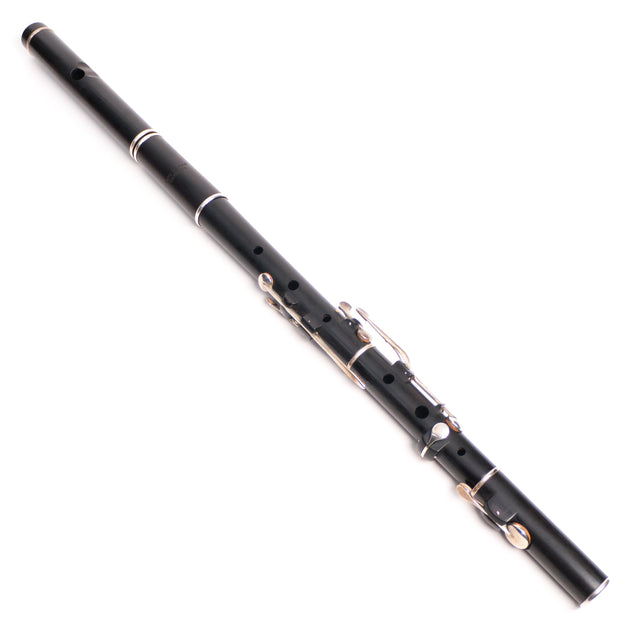Excellent Condition
Description from Terry McGee's website:
Grey prefers American-made flutes of the mid-1800s over the instruments favored by most players of Irish flute today, namely the English-made flutes of the mid-1800s, and instruments based on them. Since the 1980s he has been playing a six-key Firth Pond & Co. flute made in New York City between 1848 and 1863.
Advantages of This Style of Flute
The 19th century American flutes tend to have smaller finger holes and narrower bores. While common thought in the Irish music community says that the English flutes, with their larger bores and tone holes, play louder, Grey doesn’t find this to be quite true. He feels that the English-style flutes tend to sound brighter, and people sometimes perceive that brighter sound to be a louder sound.
Importantly, Grey finds the American-style flutes to be more agile – quicker to respond to finger articulations and ornamentation, and capable of producing a wider variety of tone colors. He finds that these qualities suit his playing, and his musical personality, much better.
The smaller outer diameter and the smaller finger holes of these American flutes make them very comfortable instruments to hold and play. People with smaller hands and fingers, or hand impairments, usually find them easier to handle than the larger English-style flutes. And they are lighter in weight.
Flutes like this had not been easy to find, until Terry McGee took a keen interest in them.
Terry and Grey Collaborate
In April 2003, Grey traveled to Canberra, Australia to collaborate with this great Australian flutemaker. Terry was intrigued by Grey’s unusual Irish flute preference. Together, they carefully studied Grey’s flute and compared it with a variety of other (mostly English) instruments of the period. Terry was so convinced of this instrument’s fine qualities that he decided to offer his own Grey Larsen Preferred model, based upon his meticulous measurements and examination of Grey’s Firth, Pond & Co. flute. More on this collaboration.
Terry writes of the Firth, Pond & Co. flute:
“It’s a delightfully easy flute to play, reminiscent of the pipes or whistle in agility and economy of air. It would suit anyone who, like Grey, values crisp ornamentation highly. Despite the small holes, the flute produces a very impressive volume of sound.”
Grey loves Terry’s Grey Larsen Preferred flute and recommends it without reservation. It plays just as beautifully as his original Firth Pond & Co. – plus Terry has managed to improve upon its already very good intonation. Grey says that if he were to lose his flute, he would go to Terry for a replacement.
Condition:
Condition: Details:

